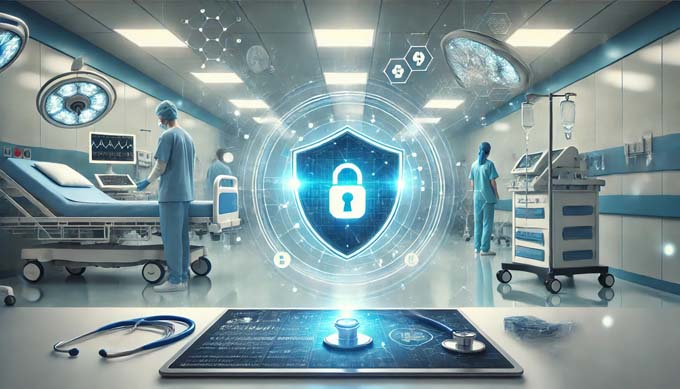Business travel in uncertain times
How do specialized organizations like International SOS classify crises in order to offer business travelers the best possible protection? Aurore Chatard, Security Director Switzerland at International SOS and Control Risks, on the limits and possibilities in politically turbulent times.

Election campaigns are always about issues of safety, health and preparedness. But it is probably all the more groundbreaking that an issue of offering protection to women travellers in particular has been gaining traction since the 2014 Indian general elections. This, however, is about much more than thwartable assaults and offences against women when they want to travel from point A to point B.
The direction in which one of the world's largest countries may move in terms of security policy is still open. India's largest parties are discussing the new security dimension in transport and travel. This is a subject that, apart from restructuring and passenger transport guidelines, is usually only discussed in smaller risk management circles.
In terms of potential dangers arising from travel in more "problematic " as well as democratic countries, one thing in particular is likely to be the kind of Achilles' heel of civil society: travelling businessmen.
Long-distance travel despite crises
Rarely are the darkest scenes and something like hopelessness the real drivers for travel projects, but projections and economic needs. "Through conversations with clients and business travellers, we learn that the main reasons to travel are to access new markets and new business activities," says Aurore Chatard, Security Director at International SOS and Control Risks, giving insight into her not everyday job.
International SOS and Control Risks support business travelers who may be confronted with potential risks while traveling. The internationally active company (see box) offers security measures and strategies to be able to seize and realize as many business opportunities as possible.
But when there are serious crises in many European regions and the relationship between NATO states, China and Russia seems to be more cloudy than it already is, who would still voluntarily travel through places and territories that are not officially administered? Aurore Chatard, who has been responsible for travel security for many years, deals with current "political side effects" that could also affect business travellers. For example, at border crossings:
"Business travellers who are at borders and transport hubs should currently expect delays and waiting times," says Geneva. She is talking about routes through which migrants are trying to reach their countries of refuge. However, the current political situation can change very quickly. International SOS informs customers with regular, timely information, for example via e-mail alerts.
Helpful news aside, there are still security gaps. According to the security specialist, experience has shown that no matter how many transport hubs are equipped with surveillance systems, there are still demographic-related obstacles, even "blind spots". Aurore Chatard therefore recommends organising longer trips with travel managers: "This would give business people the opportunity to adapt their travel plans accordingly.
Professional "guardian angels
International SOS supports many different companies. Their clientele entails diverse demands. Be it Swiss SMEs, global players from the pharmaceutical or gas industry, but also NGOs or governmental organizations - corporate officers also have to provide services in the public sphere. But how does International SOS protect employees who are too exposed, people such as CEOs, when it comes to travelling to war zones?
In such cases, the experienced security director recommends a "Close Protection Team". These are versatile bodyguards or internationally trained "guardian angels" who accompany the relevant employees at all times, says Aurore Chatard: "We're talking about a natural meet & greet at the airport, but a bodyguard and a trained driver are always on hand.
With regard to travel to crisis areas, International SOS offers "active monitoring", "so that the security team can track the location of a person travelling at any time. The person in question also receives a special briefing in which specific processes are defined and the risks and measures to be taken during the trip are discussed and agreed," says the former naval officer. It's also important to know "exactly what a traveller has to do if, for example, they are somehow separated from the Close Protection Team.
Nevertheless, minor or major risks, if not exceptional situations, can arise at any time in everyday travel. The Security Director reveals what effort, what corresponding procedures can be behind a repatriation flight in concrete terms with regard to "medically justified repatriations". Aurore Chatard: "Actually, there are various possibilities available. However, they always depend on the location. In Eastern Europe, ground transport may be the best choice. In Africa, Asia as well as in the USA, it is advisable to combine scheduled aircraft and so-called ambulance aircraft in order to return Swiss patients in the best possible way. A medical infrastructure can already be set up on board scheduled aircraft.
Ambulances would also have intensive care equipment on board in order to bring business travellers who tend to be more seriously ill from point A to point B. International SOS has a worldwide team of experienced doctors who actively support patients in difficult moments of life.
Technical assistants
Alongside refugee flows at Europe's gates, regional trouble spots are forming. In 2015, as many people are allegedly once again crossing European countries and waters as once during the Second World War in order to be able to "smell" asylum, perhaps something like freedom, in a state. - But what concrete information do business travelers actually use to mitigate risk? "Generally, for business people, it's all about information about the partner company in question, though you should also ask about the current economic situation of a country," says Aurore Chatard. It is certainly more complex to find out what the individual "risk level" of a foreign company is, she adds. Aurore Chatard advises: "Personal contact information is important these days."
But how do travelling employees find out about conflict zones and dangers away from Western data highways? The International Security Director reveals: "Both professional and ordinary customers appreciate our alert service. Increasingly, however, information is being collected and analysed via specific social media accounts. That's okay as long as the information is verifiable."
Despite global data acceleration, the security executive recommends consulting a manageable, in-house network. International SOS's network is run by in-house analysts who can also "assess appropriate information and recommendations." International SOS's global specialists do not communicate entirely in real time; however, within 30 minutes, they send out initial information about appropriate crises and threats. However, the information is then verified and accompanied by instructions for action. Nevertheless: At the latest since the nomination of a caliphate by the IS, which dominated the northwest of Iraq and the east of Syria for itself militarily from June 29, 2014, historical areas were destroyed and people were abducted, it is advisable especially also for business trips to consider as far as possible all organizational processes in crisis areas. Aurore Chatard concludes:
"Every company should protect its employees. However, financial risks should also be kept in mind. Special foreign policies could be taken out to cover the costs of a rather astronomically expensive return flight to Switzerland.
Consequently, companies could also control maintenance and personnel costs incurred abroad. However, unforeseen risks always exist: sudden strikes can bring one, rebellious kidnappings another, devastating financial or reputational consequences for companies. Something that sets International SOS apart, however, is a great deal of routine and an "all-in-one" security-technical service.









